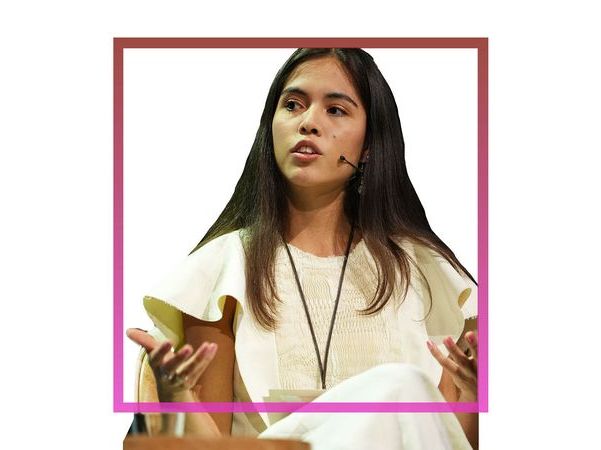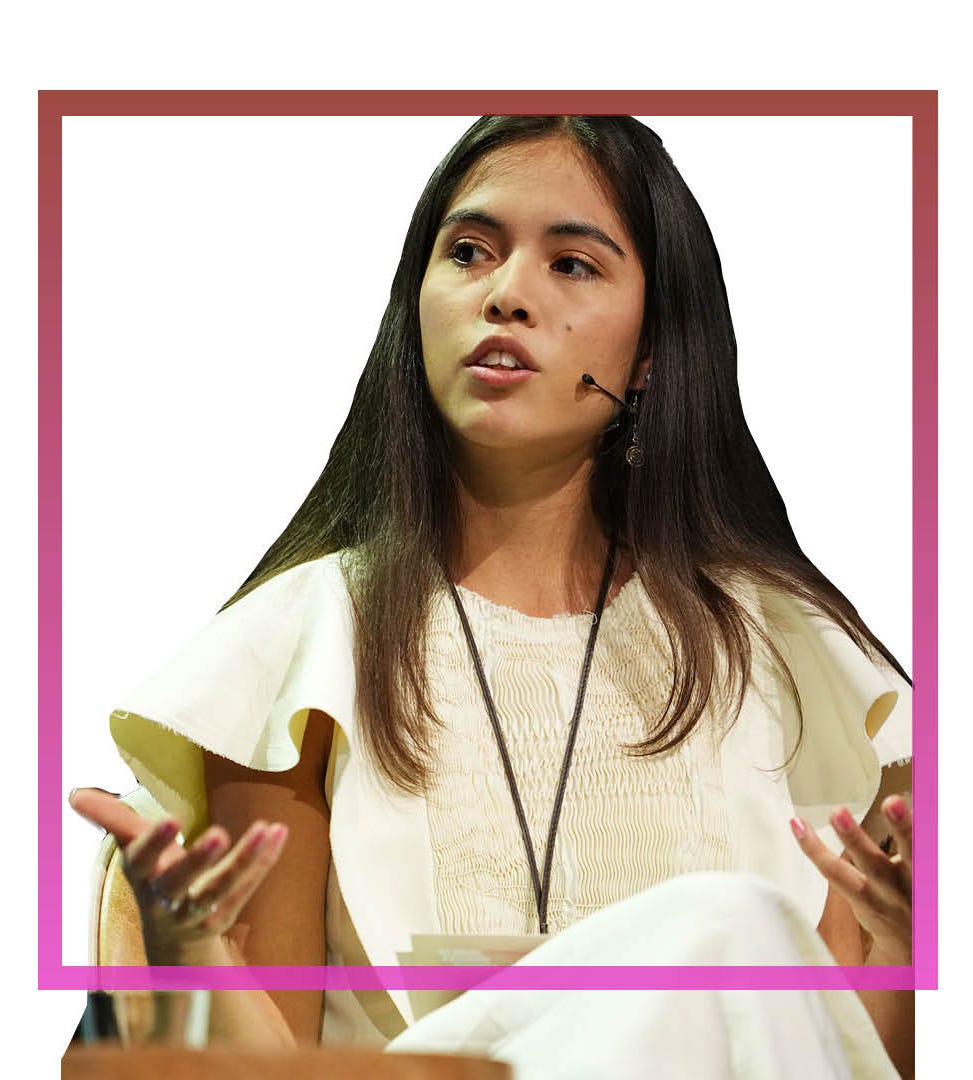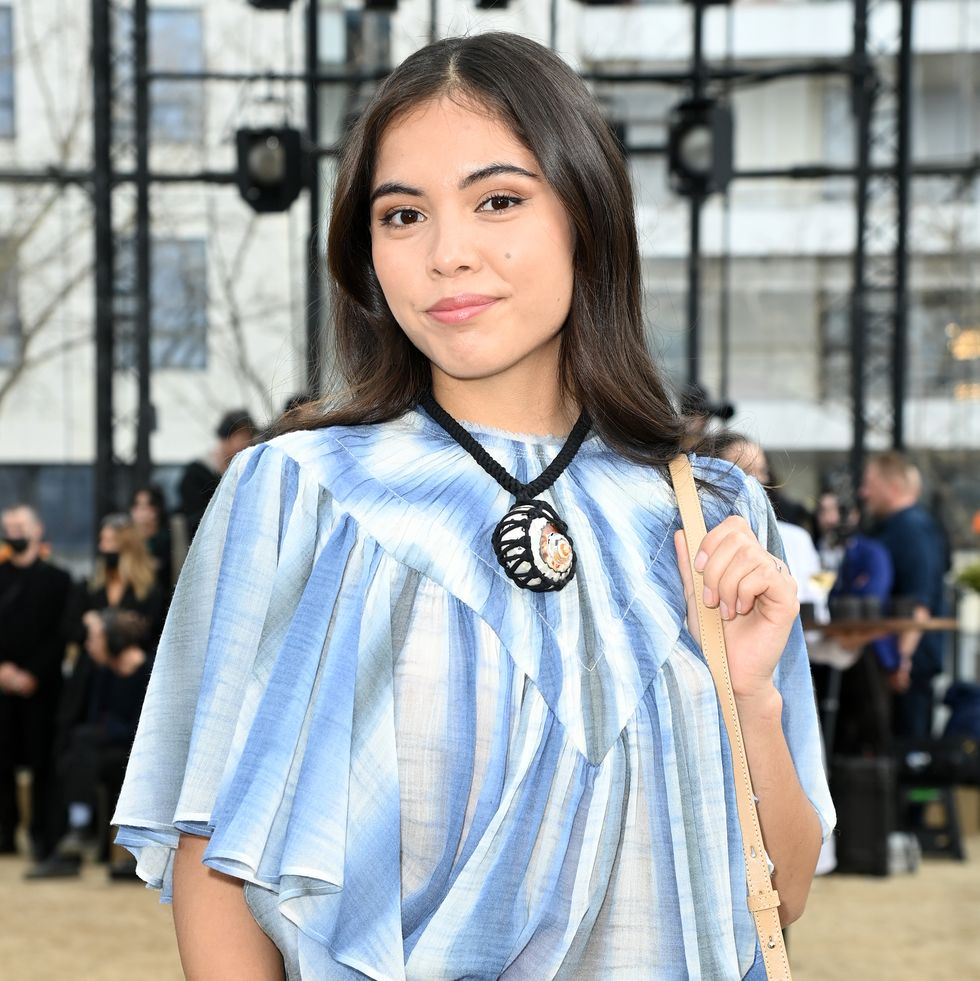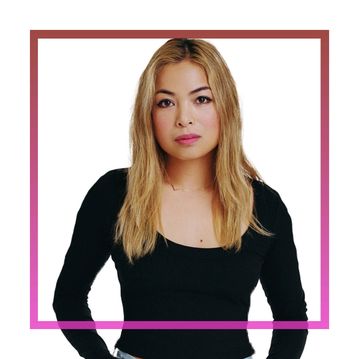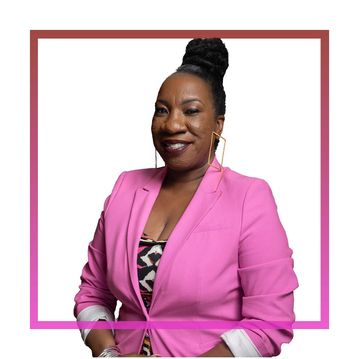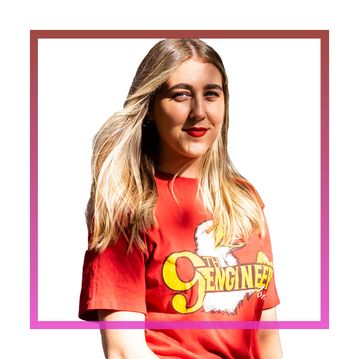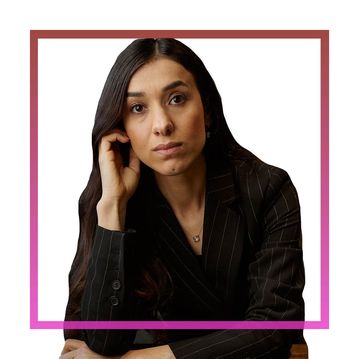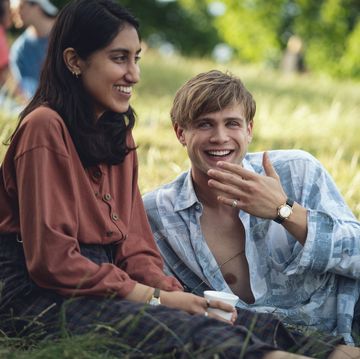When I gave the closing speech at the World Leaders Summit at COP26 last year, most of the world leaders had already left. Standing backstage beforehand, I’d heard Prime Minister Modi of India and various heads of state speak and thought, ‘This is it, next they’re going to be listening to me.’ After an announcement that an Indigenous Mexican youth activist was giving the closing speech, I went on stage and the room was practically empty. I understand they all have busy schedules, but not staying three minutes to hear the voice of the next generation was startling to me. I still gave the speech as if the room was full, because it’s stories like mine that move people to act.
I get my ability to address large crowds from my parents, both climate campaigners and professors, who met at the Earth Summit in 1992. It also comes from experience: my first conference was when I was 15 at the World Urban Forum, which focuses on how cities can be more sustainable. That has been my favourite conference so far, not only because it was my first, but because it was so solution-oriented and didn’t just repeat that refrain ‘we have to act’.
A lot of the conversations we have around climate change can be performative, and I think that comes from us speaking a different language. With the UN, the language is all about resolutions, treaties, policy papers and articles. The language we speak as youth activists is trying to translate the science so that it’s more accessible to people, but in doing so we miss the connection to what policy-makers are saying or what businesses want to hear. So that’s a step we’re taking right now: how do we speak the same language and bridge that gap?
As an activist, the thing that keeps me going is that I’m constantly learning. If I’m not learning, I cannot be a good communicator. When I’m at university taking classes on environmental ethics, international relations, physics, global warming, geology, environmental science, Latinx environmental justice… that gives me the motivation to carry on.
There is definitely an urgency involved in what we do as climate activists: we have seven years to halve our carbon emissions. It’s been five years since my first conference and that time has gone by so quickly. But, equally, from history classes I’ve taken I understand that progress takes time – from people realising there’s a problem, to mass mobilisation, to an impact in legislation, culture and business.
That’s what also keeps me from panicking: I know that, historically, movements take time to see results from their efforts. The movement has grown exponentially – at COP26 we’ve never seen so much interest from civil society. It feels as if we are on the cusp. Cult-ural shifts start slowly, as just a trickle, then all of a sudden they go ‘whoosh’. I’m just waiting for that ‘whoosh’ to come.
People often ask me, what does success look like? Joy is what success looks like. Because I want to see my kids having fun, not fighting for the world to be a liveable place. I feel you always have to include youth in spaces, mostly because we see things more clearly and we’re not tied to anybody. You need that challenge. But activism doesn’t end when your youth ends – my parents are in their 40s and 50s and they’re still fighting.
I’m outspoken about climate justice, not only for the indigenous values I’m trying to amplify, but also by saying it can’t just be a European-led movement. It’s about making space for MAPA [the Most Affected People and Areas] to speak up and be heard. Personally, I make sure I am taking space and making space all the time: out of five invitations to speak, I give four away to carve the way for others.
My commitment is that, when I’m 40, I’ll be listening to young people – but I’m also always going to listen to people who have been here before: the elders. A very wise person told me, you have to always hold the hand of somebody older and the hand of somebody younger. In that way, you never lose track. You stay connected and you keep caring.
This article appears in ELLE's September 2022 issue, on sale on July 28.
